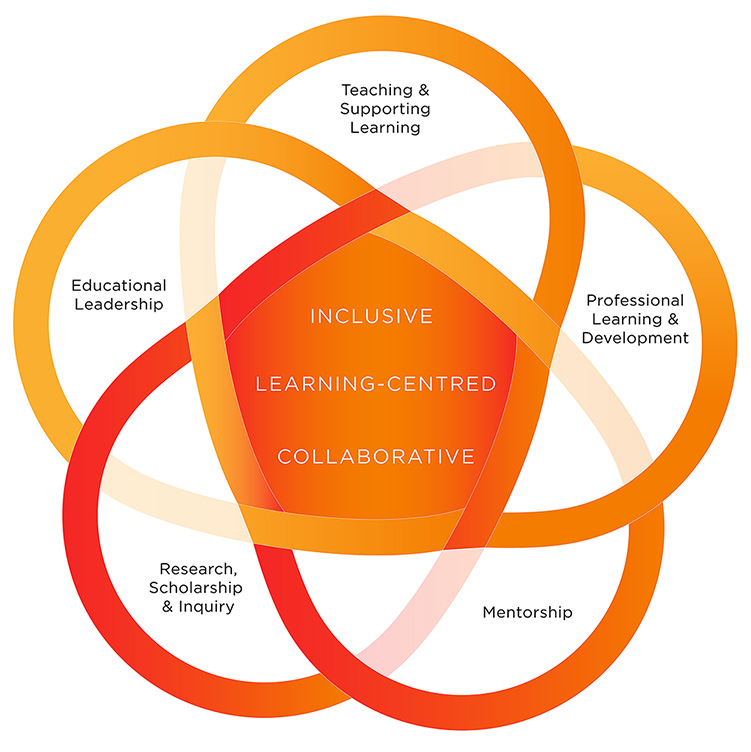Developing a learning culture: A framework for the growth of teaching expertise — from facultyfocus.com by Nancy Chick, Natasha Kenny, Carol Berenson, Carol Johnson, David Keegan, Emma Read, & Leslie Reid
Excerpt (emphasis DSC):
Many postsecondary institutions have started to explore what it means to develop and demonstrate teaching expertise, recognizing not only the complexities of teaching and of documenting the experiences of teaching, but also that teaching expertise is developed through a learning process that continues over time (Hendry & Dean, 2002; Kreber, 2002). Our framework (see below graphic) for this growth of teaching expertise draws from the scholarly literature related to postsecondary teaching and learning to demonstrate that teaching expertise involves multiple facets, habits of mind (or ways of knowing and being), and possible developmental activities.
The Structure of the Framework
Our framework (Figure 1) introduces three foundational habits of mind—inclusive, learning-centered, and collaborative ways of knowing and being—that ground five interwoven and non-hierarchical facets of teaching expertise:
- teaching and supporting learning
- professional learning and development
- mentorship
- research, scholarship, and inquiry
- educational leadership
Figure 1: Conceptualization of a framework for the development of teaching expertise
This framework is “written in pencil” in that it is meant to be shared, adapted, and used according to the needs of local contexts. The intention is to provide a scholarly framework for recognizing the breadth of characteristics involved in the development of teaching expertise in postsecondary contexts across all career stages.









